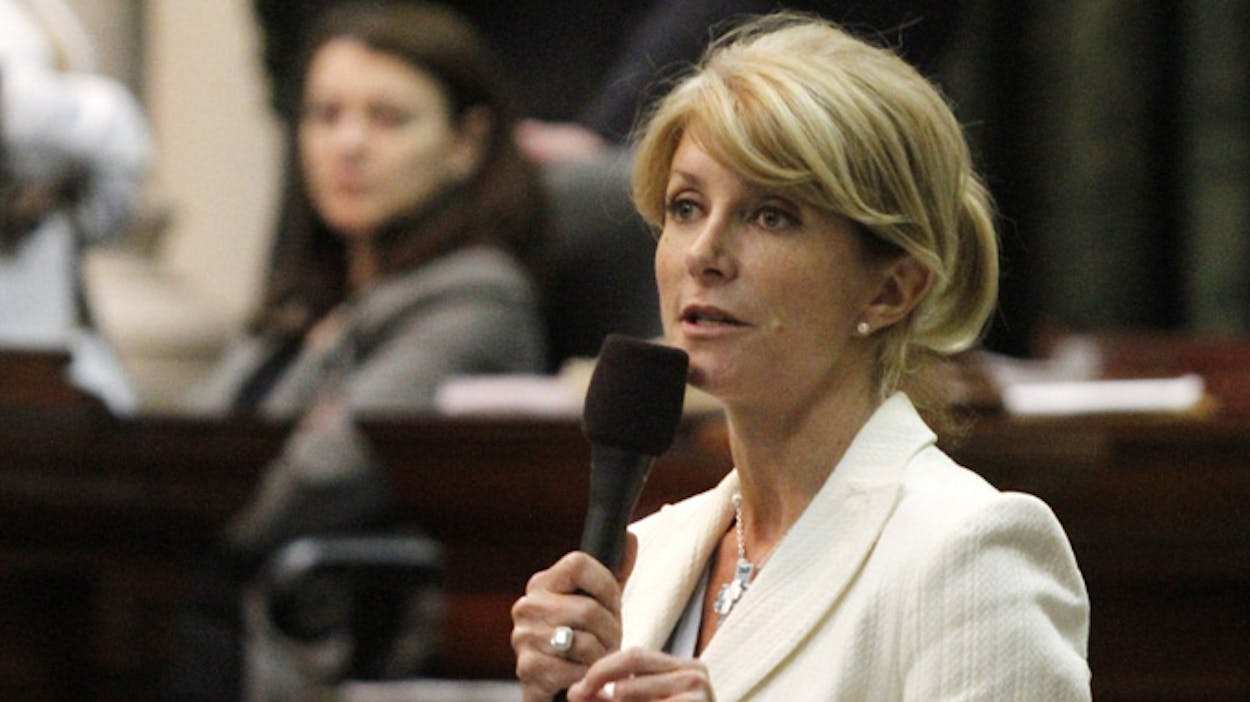Tommy Williams and Wendy Davis reminded us how quickly politics can turn personal on Wednesday when the two spent more than fifteen minutes sparring over SB 21, a bill by Williams that would make drug testing mandatory for certain individuals wishing to receive unemployment benefits.
In the Senate Committee on Economic Development, Davis and Williams clashed over the cost of the bill, the overall usefulness of the measure, and the means by which “certain individuals” would be selected to be drug tested. According to the bill’s fiscal note, the measure could cost the state $670,455 over the next biennium. Williams, however, argued that the program has the potential to save the state some $15 million over five years by preventing drug users from receiving unemployment benefits.
Who are these “certain individuals” who would be drug tested under the law? Only people who worked in fields where drug testing is standard (such as aviation, mass transit, or health care) or those who failed a pre-screening questionnaire. Those who fail a drug test because they were taking prescribed medication or participating in a drug treatment program would not be barred from receiving benefits.
Davis voiced concerns about the pre-screening questionnaire, which would include questions about a claimant’s lifestyle and work habits in the vein of “how often are you late to work?” According to Larry Temple, executive director of the Texas Workforce Commission, the answers to the questionnaire would be scrutinized to see whether they indicated a person might be using drugs.
“You’d be surprised how many people self-disclose drug abuse,” Williams said in response to a question from Davis about the purpose of the screening.
But by far the biggest disagreement between Williams and Davis was the purpose of the bill in the first place. Individuals who lost their job for failing a drug test cannot apply for unemployment benefits, and those who work in fields where drug testing is standard would be drug tested when they applied for a new job. William’s bill would require these individuals to be drug tested in the interim period, while they are looking for a new job and receiving unemployment benefits.
“What I find interesting about it is that we would be expending resources of the workforce commission to do these tests when these are people who’ve been tested in their previous line of work, are going to be tested prior to going into employment in a new job, and in this brief period of time that the find themselves on unemployment, they come under a microscope for drug testing,” Davis said, before turning from policy to personal experience.
“I’ve been on unemployment for four months when I was 18 years old and seven months pregnant. I was laid off as part of a workforce reduction … and I just can’t imagine, Senator Williams, what it would have felt like for me to have been subjected during that period of time to a drug test simply because I was on unemployment benefits. It seems to me that this is a solution looking for a problem,” Davis said.
“Well, respectfully, Senator Davis, I’d say its not really about how you would have felt when you were collecting unemployment insurance benefits,” responded Williams. “What this is about is making sure that people are in fact ready to go back to work. That’s what we require in Texas … if we’re gonna use anecdotal evidence like you just did, I can tell you that every time I visit a plant [in my district] my plant managers tell me that they want to hire local people. The biggest challenge they have is finding someone who can pass the pre-employment drug screening test.”
“I think it’s important we make a strong statement that we’re not going to tolerate casual or recreational drug abuse in our society,” Williams continued.
Davis responded by suggesting she would like to see the statistics behind the claim that people collecting unemployment are failing to get jobs because of drug use.
“You know very well that those statistics don’t exist … because the law has not been passed,” Williams said. “It was anecdotal evidence that is every bit as valid as how you might have felt were you subject to a pre-employment drug test when you were seven months pregnant and unemployed.”
Because of the bill’s non-neutral fiscal note, Williams requested that it be left pending in committee until the budget bill, SB1, had been voted on.
- More About:
- Politics & Policy






